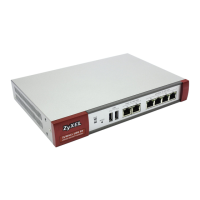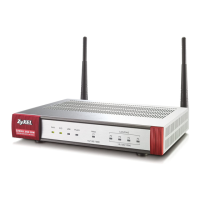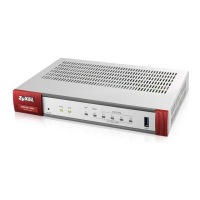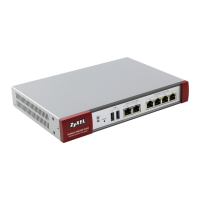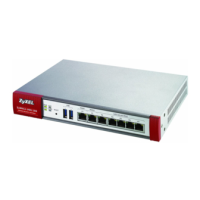Chapter 7 Route
ZyWALL (ZLD) CLI Reference Guide
83
[no] source {address_object|any} Sets the source IP address that the matched
packets must have. The
no command resets the
source IP address to the default (
any). any
means all IP addresses.
[no] sslvpn tunnel_name Sets the incoming interface to an SSL VPN
tunnel. The
no command removes the SSL VPN
tunnel through which the incoming packets are
received.
[no] trigger <1..8> incoming service_name
trigger service_name
Sets a port triggering rule. The no command
removes port trigger settings from the rule.
trigger append incoming service_name trigger
service_name
Adds a new port triggering rule to the end of the
list.
trigger delete <1..8> Removes a port triggering rule.
trigger insert <1..8> incoming service_name
trigger service_name
Adds a new port triggering rule before the
specified number.
trigger move <1..8> to <1..8> Moves a port triggering rule to the number that
you specified.
[no] tunnel tunnel_name Sets the incoming interface to an IPSec VPN
tunnel. The
no command removes the IPSec
VPN tunnel through which the incoming packets
are received.
[no] user user_name Sets the user name. The
no command resets the
user name to the default (
any). any means all
users.
policy default-route Enters the policy-route sub-command mode to
set a route with the name “default-route”.
policy delete policy_number Removes a routing policy.
policy flush Clears the policy routing table.
policy move policy_number to policy_number Move a routing policy to the number that you
specified.
show policy-route [policy_number] Displays all or specified policy route settings.
show bwm activation Displays whether or not the global setting for
bandwidth management on the ZyWALL is
enabled.
show bwm-usage < [policy-route policy_number] |
[interface interface_name]
Displays the specified policy route or interface’s
bandwidth allotment, current bandwidth usage,
and bandwidth usage statistics.
Table 39 Command Summary: Policy Route (continued)
COMMAND DESCRIPTION
